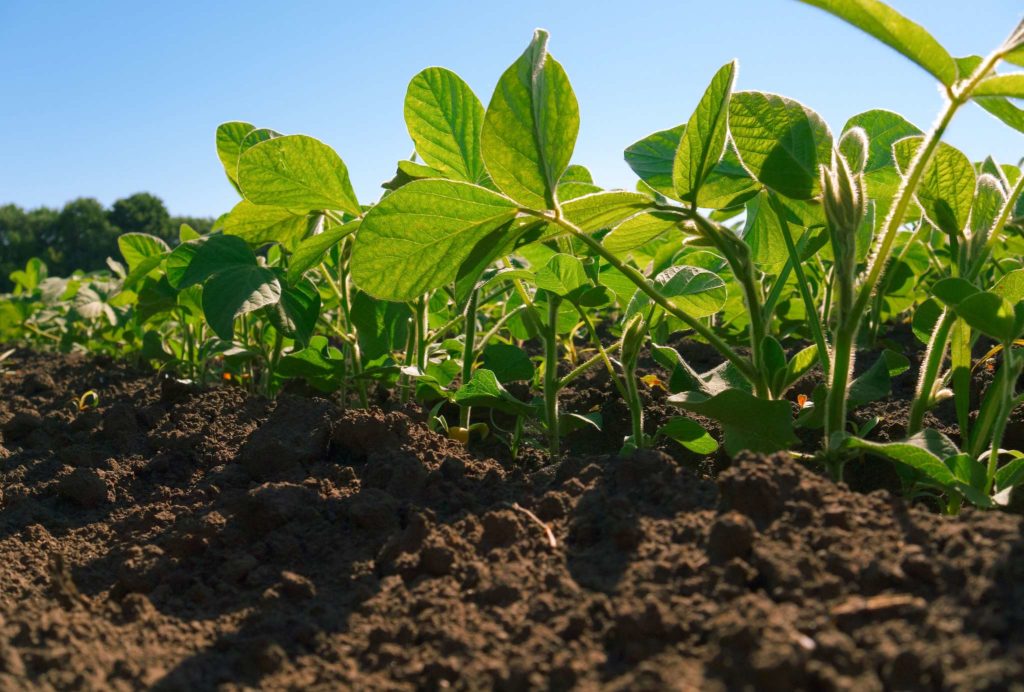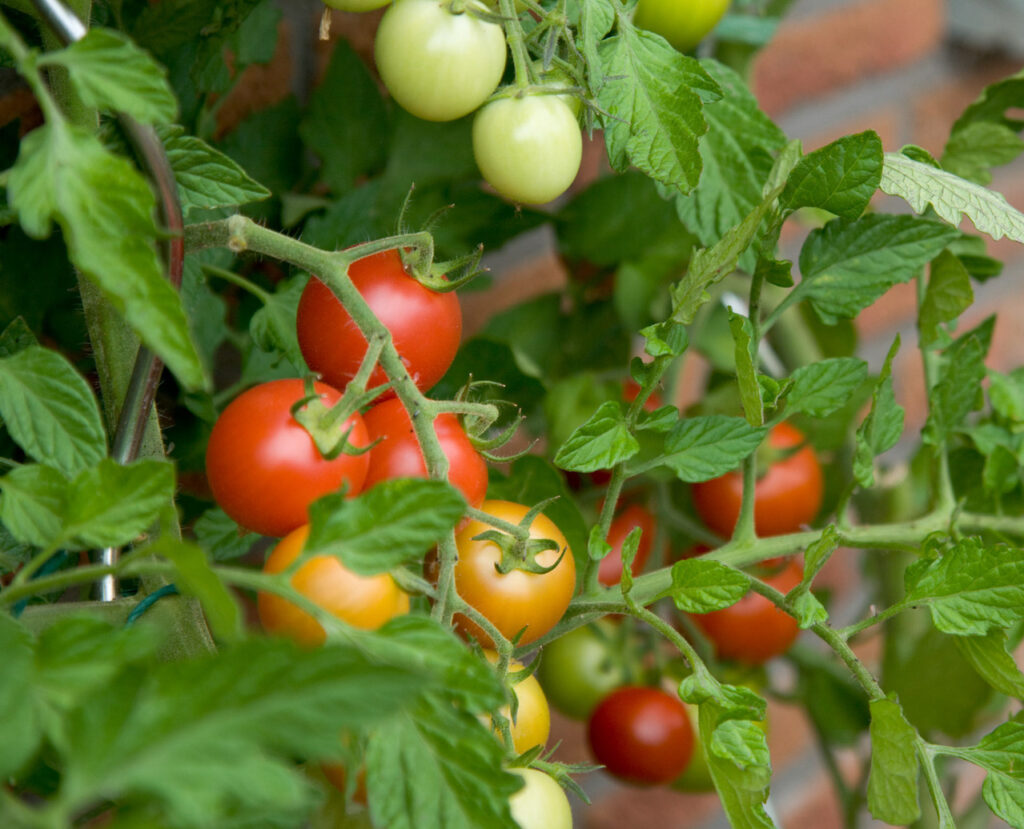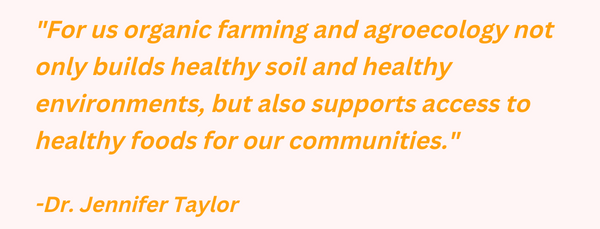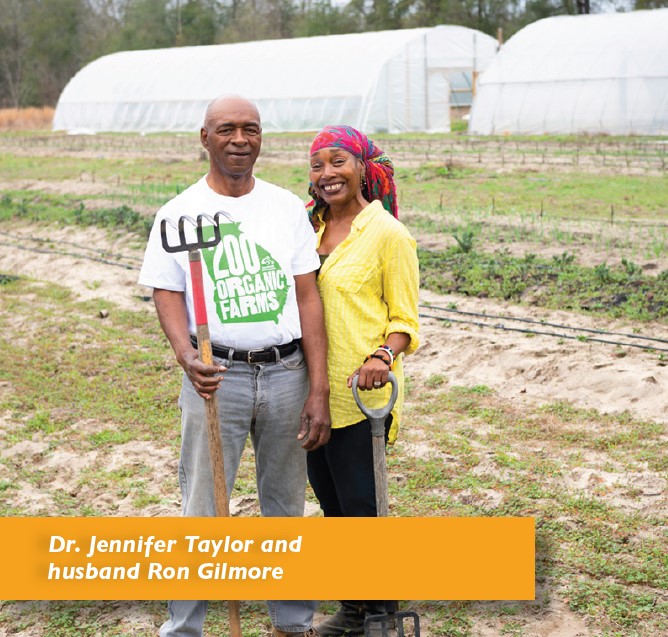(SANTA CRUZ, CALIF. – October 25, 2022) – The Organic Farming Research Foundation (OFRF) and the Foundation for Food & Agriculture Research (FFAR) are pleased to announce its third award for the 2021/22 OFRF organic research grant cycle. Dr. Jennifer Taylor of Lola’s Organic Farm was awarded $20,000 to conduct participatory research and outreach to build capacity for access to and engagement in organic farming systems and organic agriculture for Black, Indigenous, and People of Color (BIPOC) and socially disadvantaged farmers.
This farmer-led research project titled, “Organic For All”, is a participatory capacity building agricultural research and outreach project that will help identify needs, hindrances and barriers with BIPOC farmers and work together to develop solutions and resources through relevant learning sessions that provide education, hands-on training, and technical assistance. The Organic For All project is designed to help farmers walk through the development of their own organic farming systems or organic agroecology farm practices and organic agriculture.
“This project, and on-farm research in general, enables relationship-building with the farmer, the community, and researchers. It builds a unique opportunity to support the specific needs of that farmer and says to the world that farmers have important knowledge to share,” said Taylor.
This project will address the gap in participation and access opportunities for socially disadvantaged farmers, BIPOC farmers and underserved farming populations to provide training and education. Outreach efforts will build relationships for greater access and participation in organic farming systems and organic agriculture.
This year’s research grant program prioritized farmers, early career researchers, and BIPOC applicants. The six projects chosen focus on climate mitigation and building on-farm resilience and have been awarded a grand total of $119,817 in funding. The 2021/22 cycle was made possible by a $66,000.00 grant from FFAR and matching funds from OFRF and its research partners.
To date, OFRF has invested over $3 million in 361 grants across North America to advance scientific knowledge and improve the ecological sustainability and economic prosperity of organic farming systems. All OFRF-funded research must involve farmers or ranchers in project design and implementation, take place on certified organic land, and include strong education and outreach components. All research results are freely available in OFRF’s online database.
###
Foundation for Food & Agriculture Research
The Foundation for Food & Agriculture Research (FFAR) builds public-private partnerships to fund bold research addressing big food and agriculture challenges. FFAR was established in the 2014 Farm Bill to increase public agriculture research investments, fill knowledge gaps and complement USDA’s research agenda. FFAR’s model matches federal funding from Congress with private funding, delivering a powerful return on taxpayer investment. Through collaboration and partnerships, FFAR advances actionable science benefiting farmers, consumers and the environment.
https://foundationfar.org/
Organic Farming Research Foundation
The Organic Farming Research Foundation (OFRF) is a non-profit foundation that works to foster the improvement and widespread adoption of organic farming systems. OFRF cultivates organic research, education, and federal policies that bring more farmers and acreage into organic production. Project results are shared freely at ofrf.org. OFRF also provides free access to all of its educational materials and resources.
https://ofrf.org







